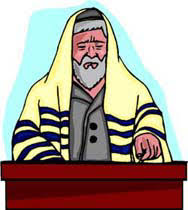 Romans 10: 5-17
Romans 10: 5-17You may have heard about the “Romans Road” method of evangelism, where the would-be evangelist takes the unbeliever through scattered verses in Romans and ends up on 10:9: “...if you believe in your heart and confess with your lips that God raised Jesus from the dead, you will be saved.”
Makes it easy. Salvation just means confessing and believing. All you need are the right tools.
The problem is, this method puts the onus on the non-believer, not with God. This popular verse of scripture ignores the work of the Holy Spirit in the salvation event. And that confessing and believing means that “Everyone who calls upon the name of the Lord will be saved” (v. 13).
After Paul talks about confessing and believing as the mode of salvation in verses 9-13, he then asks:
But how are they to call on one in whom they have not believed? And how are they to believe in one of whom they have never heard? And how are they to hear without someone to proclaim him? And how are they to proclaim him unless they are sent?”
I don’t think this passage is a call to evangelism, even though we use it that way. In fact, this was my ordination text. I read it as a summons to proclaim the good news as my life’s work.
But now I think Paul is speaking rhetorically. He ends this section with another popular verse (especially among Lutherans, since this was one of Luther’s favorite bible passages), “So, faith comes from what it heard, and what is heard comes through the word of Christ.”
So, faith isn’t something we can argue people into. Faith always comes from outside ourselves. Faith comes from hearing and receiving God’s Word, which is Jesus Christ.
Paul is saying that we can't debate people into faith, we can’t prove the validity of faith scientifically, and we can’t use our best sales tactics to bring people to faith. This also means that our programs, gimmicks, tools, and methods, may bring people into church, but they don’t bring people into faith.
“Faith comes by hearing,” Paul says, “and what is heard comes through the word of Christ.”
Our job is to tell people about Jesus. It’s God’s job to do the rest. I don’t know about you but that lifts a HUGE burden off my shoulders!








